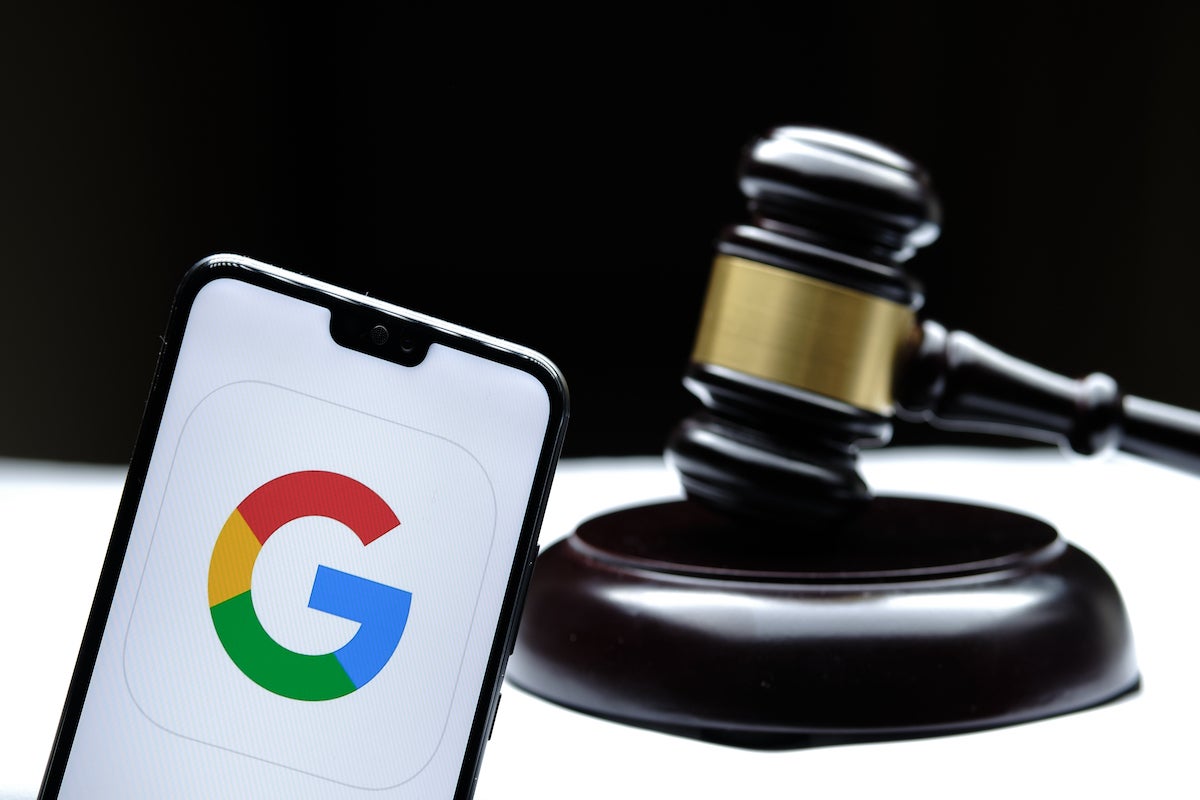The most significant tech antitrust trial of the 21st century thus far kicked off in US federal court Tuesday with the Department of Justice and 14 co-plaintiff states squaring off against the search engine giant. The DOJ accuses Google of unlawfully monopolizing the markets for general search services, search advertising, and general search text advertising in the via anticompetitive and exclusionary practices.
During opening arguments, Kenneth Dintzer, deputy director in the DOJ’s civil division, said, “This case is about the future of the internet, whether the Google search engine will ever face meaningful competition to protect that future.” At the heart of the government’s case is Google’s use of contracts to maintain what Dintzer contends is a “default status” market share that tops 89% in the search engine market and 74% in the search ads business.
“Monopoly maintenance starts with default settings that we find when we open the apps and download the browsers,” Dintzer said. ”With these defaults, Google controls search distribution and gets more searches than its rivals. It is uncontested that Google gets sixteen times the fresh data than its nearest rival, Bing.”
Insurmountable feedback loop for rivals
The DOJ says that with its massive lead in fresh data, Google can provide users with more accurate results and, in turn, attract more users and advertising revenue, creating an insurmountable feedback loop for its rivals. ”With this data, Google’s mobile search and ad products are better than its rivals can hope to be,” giving Google more money to pay for more default contracts with device makers and apps rather than investing in products, Dintzer argued
Google’s dominance not only forecloses competitors but also reduces innovation, Dintzer said, affecting the quality of results and allowing Google to neglect issues important to users, such as privacy. “Privacy is enormously important to some people. Without competition, Google refuses to offer credible protection.” Dintzer said the government will provide “direct evidence that Google refuses to offer more privacy because they’re not facing credible competition.”
On the advertising side, Dintzer said the government will prove that Google contracts have denied the distribution of potential rivals, affecting every phone and computer in the country, expressly targeting a potential entrant called Branch Metrics, and limiting Apple’s ability to innovate. When asked by Judge Amit Mehta how far back Google’s monopolization extends, Dintzer said that the DOJ’s case addresses the company’s business since 2010 when, even then, the company had a market share above 70%.
Mehta is overseeing the case in a bench trial, in which there is no jury and the judge acts as fact-finder as well as arbiter of the law.
Google’s lock on the advertising market
On behalf of the state of Colorado representing all the state plaintiffs, attorney William F. Cavanaugh, Jr. of Patterson, Belknap,…
2023-09-13 16:48:02
Original from www.computerworld.com rnrn
